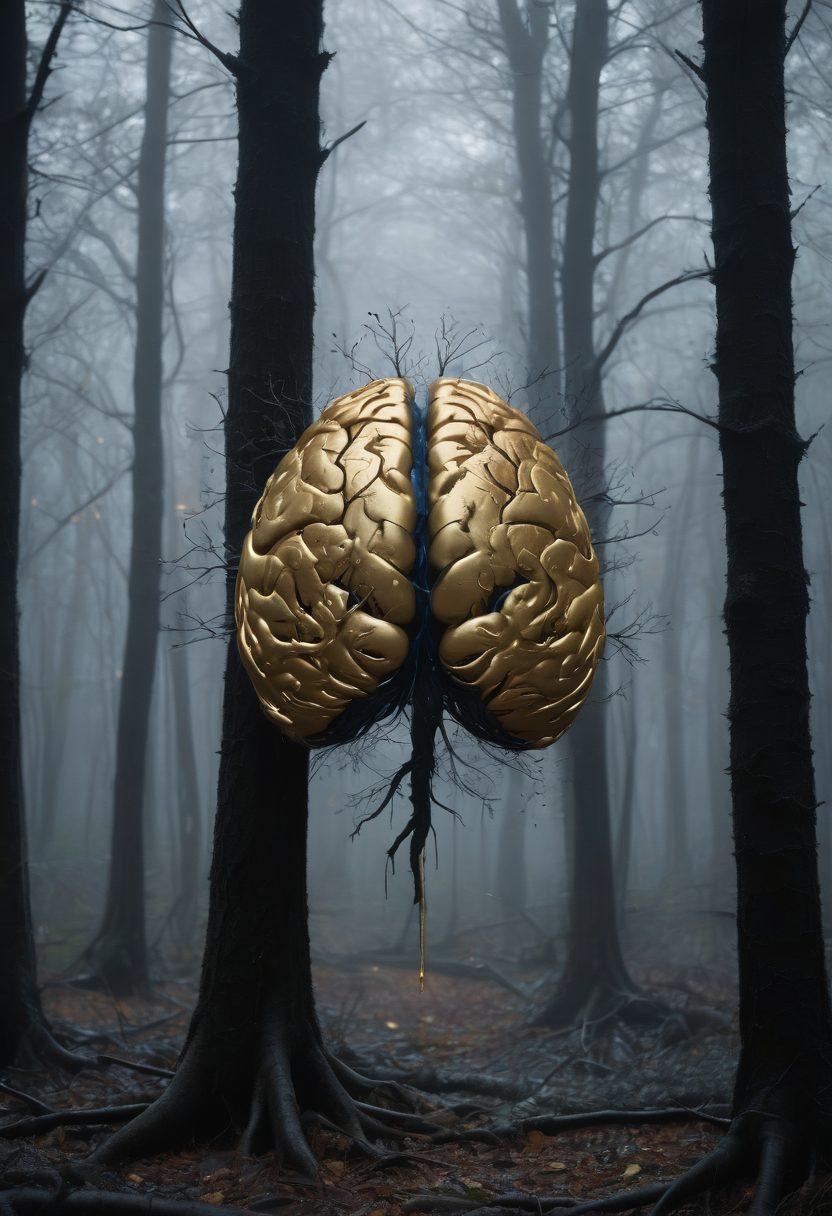Understanding the Roots of Sadness: Why Do We Feel Gloomy?
Have you ever found yourself sitting in silence, staring out of the window, lost in thoughts that feel as heavy as the clouds overhead? Emotional responses like sadness, grief, and despair can be profoundly haunting, leaving us feeling melancholic and despondent. But before you let these feelings consume you, let's explore the depths of despair together. Why do we feel such sorrowful emotions? Are they just random occurrences, or do they stem from something deeper within our hearts?
Often, sadness can accompany tragedies or significant losses in our lives. Imagine the pain of losing a loved one, feeling heartbroken and utterly distressed. These emotions—though painful—can be our soul's way of coping with life’s challenges and transformations. As the famed poet Rainer Maria Rilke said, “Perhaps all the dragons of our lives are princesses who are only waiting to see us once beautiful and brave.” This quote resonates with the idea that within our sadness lies the possibility for growth, understanding, and empathy.
Have you ever noticed how solitude can heighten emotions like grief and sadness? Being by ourselves can sometimes amplify the feelings of melancholy. The quiet moments may lead to tears or lament, stirring up memories that make us feel woeful and miserable. We might find ourselves asking, 'Why do I feel so upset when I remember that moment?' The answer often lies in the understanding of human connection and our inherent longing for companionship. Our relationships and emotional attachments significantly contribute to how deeply we experience sorrow and joy.
Our emotional responses can also be influenced by societal norms and expectations. We live in a fast-paced world that often calls for us to move on quickly, suppressing feelings of loss or grief. But it’s crucial to validate these emotions. When we feel like crying or being emotionally vulnerable, sometimes it is a way to release the distress that’s bottled up within us. Allowing ourselves the grace to feel melancholic helps us process our experiences, heal, and ultimately rise from the ashes of despair rather than remain stuck in dejection.
In the end, the roots of sadness and grief are intertwined with the essence of being human. It reminds us that our journey is complex and that feeling upset, sorrowful, or dismal is just as valid as feeling joyful or ecstatic. When emotions like sadness strike, ask yourself, 'What is this feeling trying to teach me?' Embrace your emotional landscape, reflect on your feelings, and know that in the depths of despair, resilience often awakens, paving the way for a brighter tomorrow. After all, it’s through the shadows that we learn to cherish the light.
The Anatomy of Gloom: What Triggers Our Sadness?
Have you ever found yourself sitting in a quiet room, feeling like a heavy blanket of sadness has enveloped you? That feeling of melancholy, the dull ache in your chest, or perhaps the sudden onset of tears during a seemingly indifferent moment—this is the anatomy of gloom. But why do we feel this way? What are the triggers that pull us into the depths of sadness? Understanding these elements can help us navigate through our sorrowful moments and ultimately emerge stronger on the other side.
One of the most common triggers of sadness is loss. Whether it’s the passing of a loved one, a relationship that’s come to an end, or even a job we’ve cherished, experiencing loss can leave us heartbroken and despondent. It's natural to mourn these losses, and the emotional journey often brings forth feelings of distress and grief. Have you ever lost something or someone dear to you and felt an overwhelming sense of longing? This feeling is a shared human experience, and acknowledging it can be the first step in healing our emotional wounds.
Then there are moments of solitude. Feeling isolated can amplify our sadness and make us feel woeful and miserable. We often live in a world that praises connection, yet many people find themselves feeling alone in a crowd. The absence of companionship can create a dismal atmosphere, leading to feelings of despair. How do you cope with solitude? Finding ways to engage with others, even in a small capacity, can help alleviate those feelings of being lost in your own thoughts, triggering a path toward recovery.
Life also has its fair share of tragedies—unexpected events that shake our emotional foundations. A sudden illness, financial setback, or any unforeseen circumstance can leave us feeling upset and emotionally unprepared. It’s during these times of crisis that we must allow ourselves to feel the grief and the sorrow they bring. Embracing the pain instead of hiding from it can be an essential part of processing what’s happened, and it allows us to move forward. Have you noticed how talking about your feelings can often lighten the burden?
Lastly, let’s not overlook the power of our internal dialogues—those moments of self-criticism that can intensify feelings of sadness. We can often be our own harshest critics, falling into a trap of lamenting our imperfections and struggles. Every time we tell ourselves we’re not good enough or dwell on our mistakes, we risk slipping into emotional suffering. Instead, we should remind ourselves that it’s okay to be a work in progress. How do you talk to yourself during difficult times? Remember, kindness towards oneself can be the light that breaks through the gloomiest days.
From Grief to Healing: Understanding the Journey Through Melancholy
Life is a beautiful tapestry of emotions, but sometimes we find ourselves wrapped in threads of melancholy that seem darker than we can bear. It's during these moments of sorrowful reflection that we may ask ourselves, "Pourquoi do I feel this way?" Whether it’s the heart-wrenching pang of a love lost or the distressing weight of tragedy, every ounce of sadness has a story to tell. It’s essential to understand that feeling upset or gloomy is not just a fleeting phase; it's part of the human experience, a step on the journey of grief to healing.
Grief can be a labyrinth—a place filled with twists and turns that often feels inescapable. It’s easy to become disheartened, feeling like we are enveloped by darkness. Have you ever felt despondent, thinking about how alone you are in your suffering? It’s vital to connect the dots between melancholy and its roots in loss. When we experience an emotional storm, like locking tears behind closed doors, we tend to lament over what was once whole. Understanding why we feel this way can unlock the door to healing.
Remember the last time you felt heartbroken? Perhaps it was after losing a cherished relationship or the poignant absence of someone dear. This heart-wrenching pain is often accompanied by feelings of despair and hopelessness. It's as if the world drips with a dismal color, and our dreams linger in a painful longing for what we cannot have. This grief is profound, but it is also deeply personal. You are not alone in this tumultuous sea of emotional upheaval; the journey through sorrow connects us all.
As we traverse the winding path of sorrow, let’s embrace the tears and acknowledge the anguish. Each drop is a reminder that we are alive, capable of love and longing. It can be tough to peel back the layers of melancholy and face the feelings of being woeful and miserable. However, acknowledging that emotional pain isn’t a weakness but a testament to our capacity for empathy can shift our perspective. After all, we wouldn’t understand joy without first venturing through the landscape of sadness.
However, it’s essential to remember that while our journey encompasses loss, it also invites reflection, growth, and ultimately, healing. Instead of fearing the feeling of being melancholic, we should question how we can transform that sorrowful energy into something enlightening. How can we channel those moments of deep reflection into personal growth or compassion for others? This emotional odyssey can be incredibly powerful, pushing us toward a place of comfort and understanding as we embrace the spectrum of human emotions—an integral part of healing the heart.


